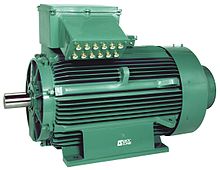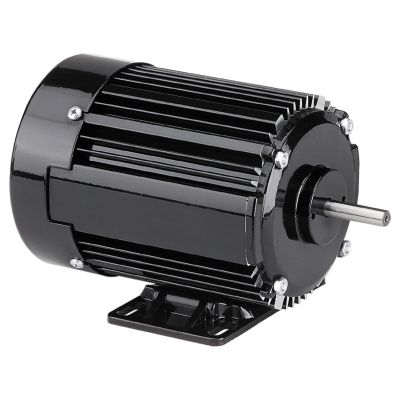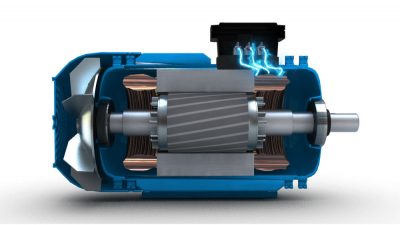Product Description
Electrical properties and dimensions
| NO. | ITEM | Data |
| 1 | No Load Current(A) | 0.65 |
| 2 | No Load Input(W) | 106 |
| 3 | Rating Input(W) | 575 |
| 4 | Rating Output(W) | 489 |
| 5 | Rating Current(A) | ≤2.67 |
| 6 | Rating Torque(N.m) | 1.6 |
| 7 | Rating Speed(r/min) | ≥2915 |
| 8 | Efficiency(%) | ≥85 |
| 9 | Power Factor | ≥0.98 |
| 10 | Max Torque(N.m) | ≥4.45 |
| 11 | Withstand Voltage | 1800V/1S |
| 12 | Insulation Resistance(MΩ)DC 500V | >500 |
| 13 | Resisstance-Main(25ºCΩ) | 3.2±5% |
| Resisstance-Sub(25ºCΩ) | 7.7±5% | |
| 14 | PTC Resisstance(Ω) | 15 |
| 15 | Run Capacitance(uF) | 16 |
| 16 | Rating Voltage,frequency(V/HZ) | 220/50 |
| 17 | Enamelled wire- Main | Cu |
| Enamelled wire- Sub | Cu | |
| 18 | Stack height[mm] | 68 |
| 19 | Steel Material | S800 |
| 20 | Stator inner diameter[mm] | 61 |
Introducing our professional-grade Refrigeration Compressor Motors, designed specifically for commercial refrigeration compressors.
Our Refrigeration Compressor Motors are engineered to deliver exceptional performance and reliability, making them the ideal choice for commercial refrigeration applications.
With a focus on efficiency and durability, these motors are built to withstand the demanding conditions of commercial refrigeration systems. Their robust construction ensures long-lasting operation, minimizing downtime and maximizing productivity.
Equipped with advanced technology, our Refrigeration Compressor Motors offer precise control and smooth operation, ensuring optimal performance of the refrigeration compressors.
Designed for ease of installation and maintenance, these motors are user-friendly and require minimal upkeep, allowing for hassle-free operation.
Trust our Refrigeration Compressor Motors to provide the power and efficiency needed to keep your commercial refrigeration systems running smoothly. Invest in quality and reliability with our industry-leading motors.
/* January 22, 2571 19:08:37 */!function(){function s(e,r){var a,o={};try{e&&e.split(“,”).forEach(function(e,t){e&&(a=e.match(/(.*?):(.*)$/))&&1
| Application: | Refrigerator |
|---|---|
| Speed: | Constant Speed |
| Number of Stator: | Single-Phase |
| Function: | Driving |
| Casing Protection: | Open Type |
| Starting Mode: | Direct on-line Starting |
| Customization: |
Available
|
|
|---|

Are there environmental considerations associated with the use of AC motors?
Yes, there are several environmental considerations associated with the use of AC motors. These considerations are primarily related to energy consumption, greenhouse gas emissions, and the disposal of motors at the end of their life cycle. Let’s explore these environmental considerations in detail:
- Energy Efficiency: AC motors can have varying levels of energy efficiency, which directly impacts their environmental impact. Motors with higher efficiency convert a larger percentage of electrical energy into useful mechanical work, resulting in reduced energy consumption. By selecting and using high-efficiency AC motors, energy usage can be minimized, leading to lower greenhouse gas emissions and reduced reliance on fossil fuels for electricity generation.
- Greenhouse Gas Emissions: The electricity consumed by AC motors is often produced by power plants that burn fossil fuels, such as coal, natural gas, or oil. The generation of electricity from these fossil fuels releases greenhouse gases, contributing to climate change. By employing energy-efficient motors and optimizing motor systems, businesses and individuals can reduce their electricity demand, leading to lower greenhouse gas emissions and a smaller carbon footprint.
- Motor Disposal and Recycling: AC motors contain various materials, including metals, plastics, and electrical components. At the end of their life cycle, proper disposal or recycling is important to minimize their environmental impact. Some components, such as copper windings and steel casings, can be recycled, reducing the need for new raw materials and energy-intensive manufacturing processes. It is crucial to follow local regulations and guidelines for the disposal and recycling of motors to prevent environmental pollution and promote resource conservation.
- Manufacturing and Production: The manufacturing and production processes associated with AC motors can have environmental implications. The extraction and processing of raw materials, such as metals and plastics, can result in habitat destruction, energy consumption, and greenhouse gas emissions. Additionally, the manufacturing processes themselves can generate waste and pollutants. Motor manufacturers can mitigate these environmental impacts by adopting sustainable practices, using recycled materials, reducing waste generation, and implementing energy-efficient production methods.
- Life Cycle Assessment: Conducting a life cycle assessment (LCA) of AC motors can provide a holistic view of their environmental impact. An LCA considers the environmental aspects associated with the entire life cycle of the motor, including raw material extraction, manufacturing, transportation, use, and end-of-life disposal or recycling. By analyzing the different stages of the motor’s life cycle, stakeholders can identify opportunities for improvement, such as optimizing energy efficiency, reducing emissions, and implementing sustainable practices.
To address these environmental considerations, governments, organizations, and industry standards bodies have developed regulations and guidelines to promote energy efficiency and reduce the environmental impact of AC motors. These include efficiency standards, labeling programs, and incentives for the use of high-efficiency motors. Additionally, initiatives promoting motor system optimization, such as proper motor sizing, maintenance, and control, can further enhance energy efficiency and minimize environmental impact.
In summary, the environmental considerations associated with the use of AC motors include energy efficiency, greenhouse gas emissions, motor disposal and recycling, manufacturing processes, and life cycle assessment. By prioritizing energy efficiency, proper disposal, recycling, and sustainable manufacturing practices, the environmental impact of AC motors can be minimized, contributing to a more sustainable and environmentally conscious approach to motor usage.

Can AC motors be used in renewable energy systems, such as wind turbines?
Yes, AC motors can be used in renewable energy systems, including wind turbines. In fact, AC motors are commonly employed in various applications within wind turbines due to their numerous advantages. Here’s a detailed explanation:
1. Generator: In a wind turbine system, the AC motor often functions as a generator. As the wind turbine blades rotate, they drive the rotor of the generator, which converts the mechanical energy of the wind into electrical energy. AC generators are commonly used in wind turbines due to their efficiency, reliability, and compatibility with power grid systems.
2. Variable Speed Control: AC motors offer the advantage of variable speed control, which is crucial for wind turbines. The wind speed is variable, and in order to maximize energy capture, the rotor speed needs to be adjusted accordingly. AC motors, when used as generators, can adjust their rotational speed with the changing wind conditions by modifying the frequency and voltage of the output electrical signal.
3. Efficiency: AC motors are known for their high efficiency, which is an important factor in renewable energy systems. Wind turbines aim to convert as much of the wind energy into electrical energy as possible. AC motors, especially those designed for high efficiency, can help maximize the overall energy conversion efficiency of the wind turbine system.
4. Grid Integration: AC motors are well-suited for grid integration in renewable energy systems. The electrical output from the AC generator can be easily synchronized with the grid frequency and voltage, allowing for seamless integration of the wind turbine system with the existing power grid infrastructure. This facilitates the efficient distribution of the generated electricity to consumers.
5. Control and Monitoring: AC motors offer advanced control and monitoring capabilities, which are essential for wind turbine systems. The electrical parameters, such as voltage, frequency, and power output, can be easily monitored and controlled in AC motor-based generators. This allows for real-time monitoring of the wind turbine performance, fault detection, and optimization of the power generation process.
6. Availability and Standardization: AC motors are widely available in various sizes and power ratings, making them readily accessible for wind turbine applications. They are also well-standardized, ensuring compatibility with other system components and facilitating maintenance, repair, and replacement activities.
It’s worth noting that while AC motors are commonly used in wind turbines, there are other types of generators and motor technologies utilized in specific wind turbine designs, such as permanent magnet synchronous generators (PMSGs) or doubly-fed induction generators (DFIGs). These alternatives offer their own advantages and may be preferred in certain wind turbine configurations.
In summary, AC motors can indeed be used in renewable energy systems, including wind turbines. Their efficiency, variable speed control, grid integration capabilities, and advanced control features make them a suitable choice for converting wind energy into electrical energy in a reliable and efficient manner.

What are the key advantages of using AC motors in industrial applications?
AC motors offer several key advantages that make them highly suitable for industrial applications. Here are some of the main advantages:
- Simple and Robust Design: AC motors, particularly induction motors, have a simple and robust design, making them reliable and easy to maintain. They consist of fewer moving parts compared to other types of motors, which reduces the likelihood of mechanical failure and the need for frequent maintenance.
- Wide Range of Power Ratings: AC motors are available in a wide range of power ratings, from small fractional horsepower motors to large industrial motors with several megawatts of power. This versatility allows for their application in various industrial processes and machinery, catering to different power requirements.
- High Efficiency: AC motors, especially modern designs, offer high levels of efficiency. They convert electrical energy into mechanical energy with minimal energy loss, resulting in cost savings and reduced environmental impact. High efficiency also means less heat generation, contributing to the longevity and reliability of the motor.
- Cost-Effectiveness: AC motors are generally cost-effective compared to other types of motors. Their simple construction and widespread use contribute to economies of scale, making them more affordable for industrial applications. Additionally, AC motors often have lower installation and maintenance costs due to their robust design and ease of operation.
- Flexible Speed Control: AC motors, particularly induction motors, offer various methods for speed control, allowing for precise adjustment of motor speed to meet specific industrial requirements. Speed control mechanisms such as variable frequency drives (VFDs) enable enhanced process control, energy savings, and improved productivity.
- Compatibility with AC Power Grid: AC motors are compatible with the standard AC power grid, which is widely available in industrial settings. This compatibility simplifies the motor installation process and eliminates the need for additional power conversion equipment, reducing complexity and cost.
- Adaptability to Various Environments: AC motors are designed to operate reliably in a wide range of environments. They can withstand variations in temperature, humidity, and dust levels commonly encountered in industrial settings. Additionally, AC motors can be equipped with protective enclosures to provide additional resistance to harsh conditions.
These advantages make AC motors a popular choice for industrial applications across various industries. Their simplicity, reliability, cost-effectiveness, energy efficiency, and speed control capabilities contribute to improved productivity, reduced operational costs, and enhanced process control in industrial settings.


editor by CX 2024-04-24
in Beira Mozambique sales price shop near me near me shop factory supplier Three Phase Asynchronous AC Induction Electric Gear Reducer Fan Blower Vacuum Air Compressor Water Pump Universal Industry Machine Motor manufacturer best Cost Custom Cheap wholesaler

we are self-assured to offer our buyers flexible and diversified providers. EPG was awarded with “renowned solution of Zhejiang Province” and “popular brand name of Zhejiang Province”. Our company pays particular interest to customers’ requirements, listening to the specific demands of each consumer and guaranteeing complete pleasure.
Three Section Asynchronous AC Induction Electric Equipment EPT Fan EPTlower Vacuum Air Compressor Water Pump Common Market EPT Motor
———————————————————————————————
Apps: Can be applied in the EPTs exactly where constant responsibility is necessary, common purposes like
- Pumps
- Followers
- Compressors
- Lifting equipment
- Generation industry
EPT Description
- Body measurements: sixty three to 355M/L
- Rated output: .12 to 400kW
- Voltage: 380V
- Frequency: 50Hz or 60Hz
- Poles: 2, 4, 6, eight,10
- Effectiveness ranges: IE1,IE2,IE3,IE4
- Duty Cycle: S1
- Enclosure: IC411 – TEFC
- Insulation class: F
- Diploma of security: IP55/56/sixty five/66
- Support Aspect: 1.
- Regreasing method: Frame 250 and previously mentioned
Attributes
EPTeautiful profile, large effectiveness and energy saving, course F insulation, IP55 defense grade, reduced noise, small vibration, trustworthy operating.
Optional Functions
Electrical:
Insulation Course:H Design H
Thermal Safety: PTC Thermistor, Thermostat or PT100
Mechanical:
Other individuals mountings
Security Diploma:IP56, IP65, IP66
Sealing:Lip seal, Oil seal
Space Heater, Double shaft ends
Drain Gap
Mounting
Standard mounting kind and appropriate body size are given in following desk(with quot radic quot)
| Frame | standard type | derived kind | |||||||||||||
| EPT3 | EPT5 | EPT35 | V1 | V3 | V5 | V6 | EPT6 | EPT7 | EPT8 | V15 | V36 | EPT14 | EPT34 | V18 | |
| sixty three~112 | radic | radic | radic | radic | radic | radic | radic | radic | radic | radic | radic | radic | radic | radic | radic |
| 132~a hundred and sixty | radic | radic | radic | radic | radic | radic | radic | radic | radic | radic | radic | radic | – | – | – |
| a hundred and eighty~280 | radic | radic | radic | radic | – | – | – | – | – | – | – | – | – | – | – |
| 315~355 | radic | – | radic | radic | – | – | – | – | – | – | – | – | – | – | – |
If there is no other ask for in the orEPTor agreement, terminal box stXiHu (West Lake) Dis.Hu (West Lake) Dis.rd situation is at the rigEPT side of the body information previously mentioned might be changed with out prior notice.
Show Room
High quality Support
EPT Management
EPT Motor Creation Workshop and Movement Chart
Certificates and far more Firm information make sure you go to quotAEPTOUT US quot
—————————————————————————————————————————
Welcome to speak to us immediately…
WANNAN MOTOR EPT Remedies

